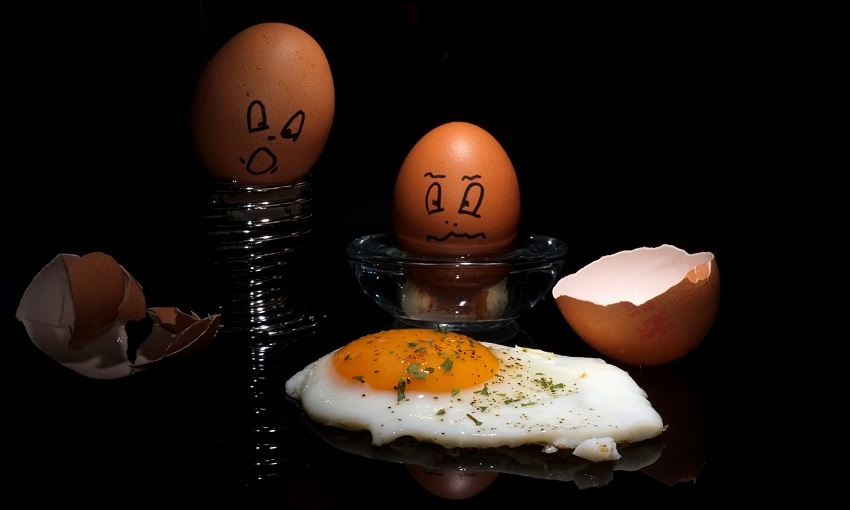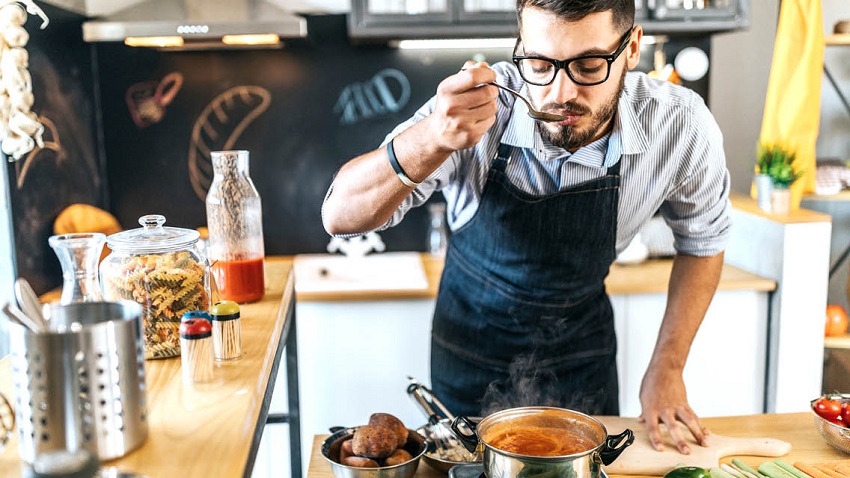If you’ve ever watched a skilled chef at work, effortlessly chopping, sautéing, and creating culinary masterpieces, you might wonder if those talents are attainable for the everyday home cook. The truth is, while top chefs have honed their skills through years of experience, there are several basic kitchen skills that anyone can learn and master with a little practice.
These skills form the foundation of cooking and can turn even the simplest ingredients into delicious meals. In this article, we’ll delve into some essential kitchen skills that will empower you to create satisfying dishes and enhance your overall cooking experience. This content is presented by Natural-lotion.com.
Mastering Knife Skills: The Art of Chopping and Slicing
A well-sharpened knife is a chef’s best friend. Learning proper knife techniques not only speeds up your meal prep but also ensures uniform cooking. Start by holding the knife correctly – grip the handle firmly with your dominant hand and place your other hand on top of the blade, using your knuckles as a guide. Improving your knife skills is essential in the kitchen and can make a significant difference in the outcome of your dishes. One of the best ways to do this is by practicing slicing, dicing, and chopping various ingredients. By doing so, you’ll be able to develop a better sense of control and precision with your knife, making your cooking experience more enjoyable and efficient. Kitchen hacks such as these are simple yet effective ways to enhance your culinary skills and elevate your dishes to the next level.
The Magic of Flavor Profiles: Balancing Taste and Texture
Understanding how different flavors work together is essential for creating delicious dishes. Experiment with sweet, salty, sour, and umami flavors to create well-balanced meals. Consider the texture of ingredients as well; combining crispy and creamy elements can elevate your dish to a new level of gastronomy.
Mastering Heat: Stovetop and Oven Techniques
Cooking involves harnessing the power of heat. Whether you’re sautéing, simmering, baking, or roasting, controlling the heat is crucial. Invest time in learning your stovetop’s temperature settings and your oven’s nuances. This knowledge will prevent overcooking or undercooking your meals.
The Maillard Reaction: Searing and Browning
The Maillard reaction is a culinary phenomenon responsible for the delicious browning of foods. Whether it’s searing a steak or caramelizing onions, mastering this reaction enhances the flavors in your dishes. Make sure not to overcrowd the pan, allowing your ingredients to develop that desirable golden-brown color.
From Egg Basics to Culinary Excellence
Eggs are a versatile ingredient used in various recipes. Master the art of frying, poaching, boiling, and scrambling eggs. Once you understand the basics, you can explore advanced techniques like creating silky hollandaise sauce or fluffy soufflés.
The Power of Homemade Stocks and Sauces
Stocks and sauces form the foundation of many dishes. Learning how to make your own chicken, beef, or vegetable stock can elevate your recipes. Similarly, mastering the art of creating velvety sauces like béchamel or velouté opens up a world of culinary possibilities.
Read more: How to make a mini book yourself at home?
Baking Essentials: Precision and Chemistry
Baking is a science as much as an art. Accurate measurements, proper mixing techniques, and understanding the chemical reactions that occur during baking are essential. From decadent cakes to flaky pastries, honing your baking skills can result in delightful treats.
The Importance of Timing and Organization
In the fast-paced environment of a kitchen, timing is everything. Knowing when to start cooking each component of a dish ensures that everything comes together perfectly. Keep your workspace organized, with all necessary ingredients and tools within arm’s reach.
Tasting and Adjusting: The Palate’s Finest Hour
A skilled cook tastes as they go, adjusting flavors and seasonings to achieve culinary perfection. Develop your palate by experimenting with different seasonings and spices. Don’t be afraid to adjust recipes to suit your preferences.
Presentation: The Art of Plating
The way a dish looks can greatly impact your dining experience. Learn how to plate your creations elegantly, using garnishes, sauces, and arrangement to make your dishes visually appealing.
In conclusion, acquiring basic kitchen skills is not only achievable but also immensely rewarding. As you progress on your culinary journey, remember that practice makes perfect. Start with these foundational skills, and you’ll soon find yourself experimenting with more complex techniques and creating impressive meals that showcase your newfound expertise.
FAQs
What if I’m a complete beginner in the kitchen?
If you’re just starting, don’t worry! Begin with simple recipes and gradually build your skills over time.
Can I substitute ingredients in recipes?
Absolutely! Experimenting with ingredients can lead to exciting new flavors and dishes.
How can I prevent overcooking my food?
Keep a close eye on the cooking time and use a timer to ensure you don’t accidentally overcook your meals.
Why is knife technique so important?
Proper knife skills not only make cooking more efficient but also contribute to the overall presentation of your dishes.
Should I invest in high-quality kitchen tools?
While quality tools can enhance your cooking experience, you can start with basic equipment and gradually upgrade as needed.





